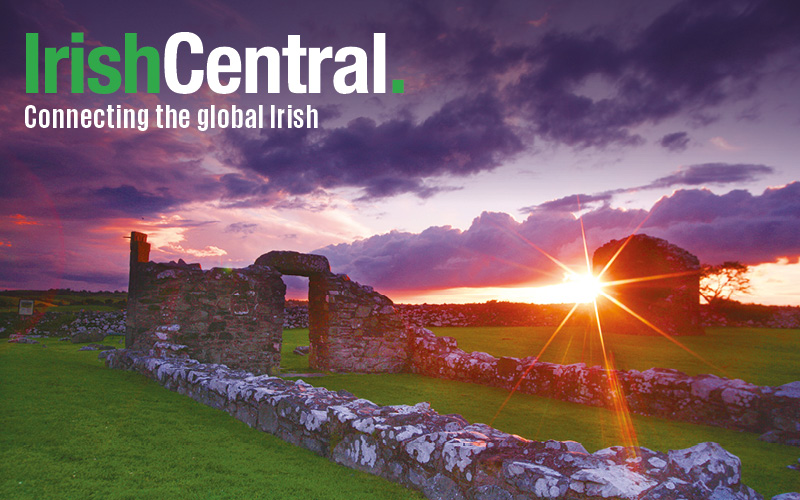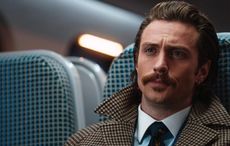'Wasted,' Irish journalist and broadcaster Brian O’Connell’s brave and very funny new book about the Irish relationship to the demon drink is remarkable for many reasons, but foremost it’s remarkable for existing at all: because, let’s face it, the Irish don’t often question their relationship to booze in print or anywhere else, for that matter.
There are good reasons for this. First of all there’s the centuries of hideous racial stereotyping. The image of the drunken Paddy is such an emotive one that even the Irish, it turns out, are loathe to touch it. Anyone who even tries to make that shrill you all drink too much speech is asking for trouble. We’ve learned how to dismiss them reflexively. Instead of asking what’s wrong with our widespread excessive drinking we ask what’s wrong with the person who’s asking us instead. It’s a classic case of shoot the messenger.
For this reason, and more besides, O’Connell himself would be the first to admit he’s not on a crusade. He’s certainly not one of those irritating people who has seen the error of his ways and now insists you do the same. It’s much more personal than that. O’Connell found himself questioning the complicated Irish relationship to booze after it almost consumed him.
That specific change, from a drinker with an alcohol problem to ex-drinker with a problem with alcohol, took him from the inside lane of Irish life to the sidelines, where it turned out he could see things much more clearly. As a reformed man he now feels much more uncomfortable with some of the conventions of Irish life. Ireland becomes an uncomfortable place to live when you start asking awkward questions, he’s discovered.
Early on he realized he would have to make Wasted more than his own story, to beat back the begrudgers. So wisely he turned to other public figures like Des Bishop, Frances Black, Mary Coughlan and Niall Toibin to underline that drink can claim anyone, with remarkable ease and finality. It’s a serious struggle, he reminds us, to prise yourself free of its grip when it becomes a problem.
It would really help if the Irish would admit that there actually is a widespread problem, O’Connell argues. Growing up in Ennis, County Claire he went to University College Cork to study arts where got interested in acting. Along the way though he took up journalism and distinguished himself early on, but it was not his passion, at least not at first. A stint as a music promotions company executive meant that drinking actually became his main occupation and working was something he did to keep himself in booze.
'I was working in music and journalism. Aside from working in a brewery I could hardly have chosen two more perfect careers to facilitate my drink problem. My personal life became chaotic. In the end I went to rehab. When I came out of there in 2005 that’s when my media career really began to get reestablished.'
Like a lot of Irish men, he feels, he didn’t allow himself to develop as he should have emotionally. 'That’s an Irish problem full stop. It’s a male Irish problem too. We have one of the highest under 30 male suicide rates in the world,' says O’Connell. 'There seems to be this huge disconnect between Irish men and their emotions.'
O’Connell used to drink to become his authentic self, to get to where he could talk fluidly about how he was feeling and express his emotions freely. 'Then you come to rely on it. You get to a point where you can’t go to any social situation without thinking of having a few drinks.'
'Weddings, parties, funerals, you name it. I became a dad at 23 and I couldn’t deal with that either, I mean I was still a child emotionally myself. I drank then in reaction to the responsibilities of that being thrust upon me at a young age.'
The majority of people he was hanging around with had the same kinds of experiences and outlooks. There was no real pressure coming down on him to change the kind of drinking he was doing. 'Irish society is a huge enabler for problem drinkers. You’re cocooned and facilitated by the fact that Irish society has a dysfunctional relationship with alcohol.'
When he considered rehab his closest friend at the time told him he was making the biggest mistake of his life. He said it would always be on his medical record, if he looked for a bank loan they’d read it and deny him. 'He said just get a 9 to 5 and a proper girlfriend and I’d be OK. That was the kind of advice a friend was giving me. You know, anything rather that confront what’s looking them right in the face.'
Wasted by Brian O’Connell can be ordered from www.gillmacmillan.ie




Comments